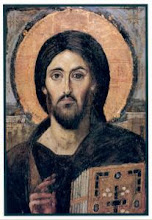Monday, February 3, 2014
Leadership in the Parish
Solid leadership is absolutely essential to the life and
wellbeing of the parish. This does not mean that the Rector is charged with
making all the decisions. On the contrary, decision-making should be as
collaborative as possible. However there are times when it is appropriate for
the Rector to make a decision without consultation of others. This is not to
say that the Rector is a dictator. This leadership model should only be used in
times of urgency, or if the Rector has extensive theological and practical
knowledge of the subject at hand.
Along with the Bishop, it is the Clergy’s job to see to the
governance of the Church, carry out its missionary and pastoral work, preaching
the Word of God, and administering the Holy Sacraments. It is also the clergy’s
job to train and build up the ministry of the laity. This should be done as
often as possible, allowing the appointed committees, and their chairs to
discuss and decide what direction to take on an issue. However it is important
to remember, we are not a ‘Congregationalist Church.’ Like it or not the
Episcopal Church is a high-archaical Church. Episcopal means Bishop. Each
Bishop oversees and carries out the apostolic work of leading, supervising, and
uniting the church. Thus we are under the pastoral authority of the Bishop.
The Episcopal Church is built on a liturgical model: the
Holy Eucharist, the Daily Office and individual devotions and prayers. This is essential
to the foundation of the church, and requires much lay participation. The next
level of this model is our theology, also known as the three-legged stool. We
are also built on Tradition, Scripture and Reason. Each of these categories
plays an important part in the life of our personal and cooperate theology.
It is important to note that while we have a worship
committee to help decide our liturgy as viewed through the lens of the stated
theology above, the Rector is ultimately in charge of all worship. The vestry
however, is in charge of making all the financial decisions of the parish.
The Episcopal Church has a structured form of leadership.
This is important as we live into our theological identity. At the center of
this all is the Book of Common Prayer. We stress cooperate worship and the 1979
BCP gives us explicit directions. There are both important elements of the
liturgy designed for the laity to undertake, as well as the clergy. The Book of
Common Prayer clearly states however, “The
particular Forms of divine Worship, and the Rites and Ceremonies appointed to
be used therein, being things in their own nature indifferent, and alterable,
and so acknowledged; it is but reasonable that upon weighty and important
considerations, according to the various exigency of times and important
considerations, according to the various exigency of times and occasions, such
changes and alterations should be made therein, as to those in place of
Authority should, from time to time, seem either necessary or expedient.” In
other words there will be occasions in which the Rector will have to make
decisions regarding the liturgical needs of the parish without committee
assistance.
Please understand this is not to take away the role of the
laity and their active participation, including decision-making. The 1979 Book
of Common Prayer makes it clear that there is much more lay involvement and
participation in the liturgy as well as the life and ministries of the church.
Subscribe to:
Post Comments (Atom)
Trinity Wall Street Conference Center Chapel

Our prayers rise like incense into heaven
Church of the Good Shepherd, Augusta, Ga.

"...And the sun shall not strike you by day, nor the moon by night."

























No comments:
Post a Comment